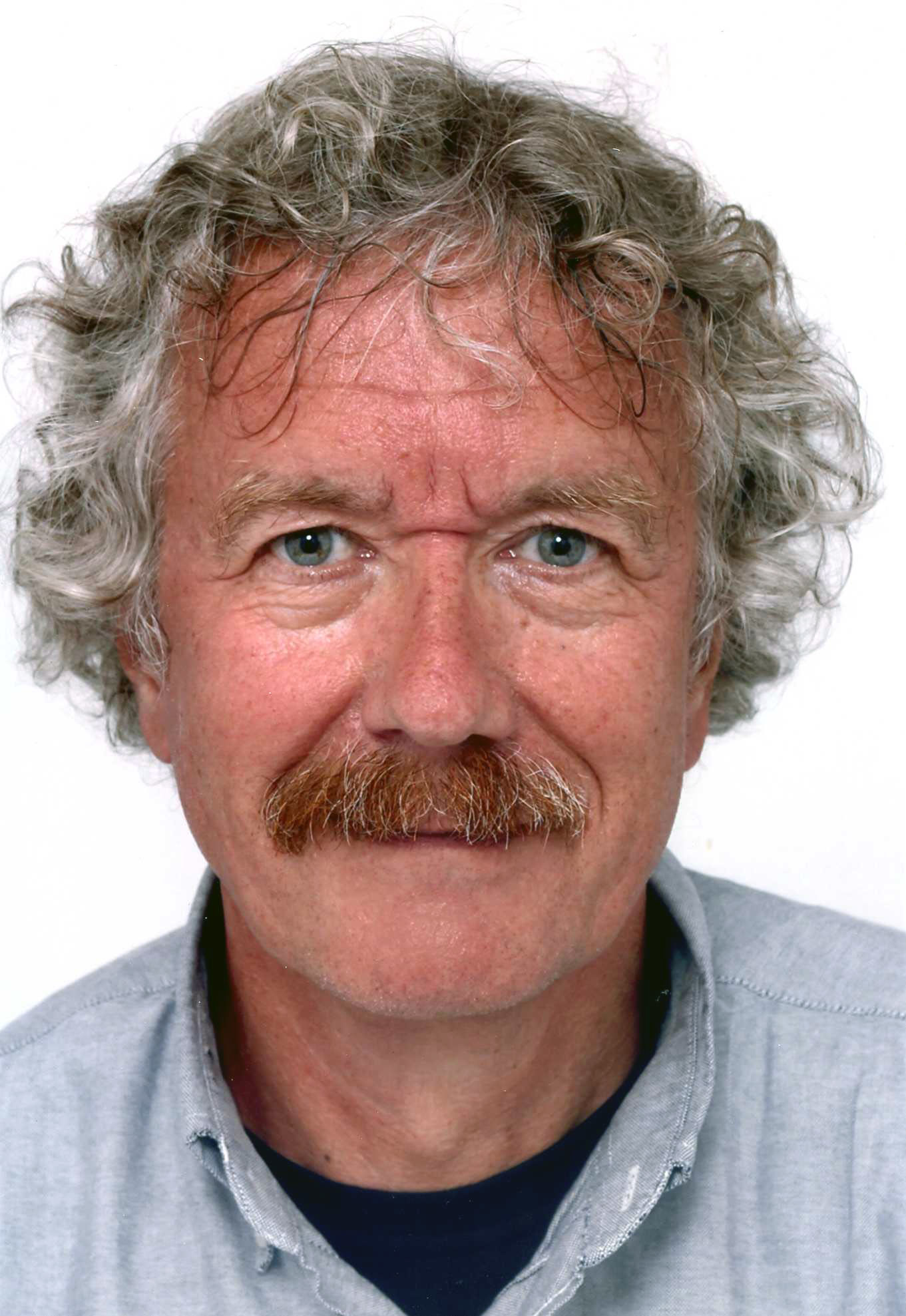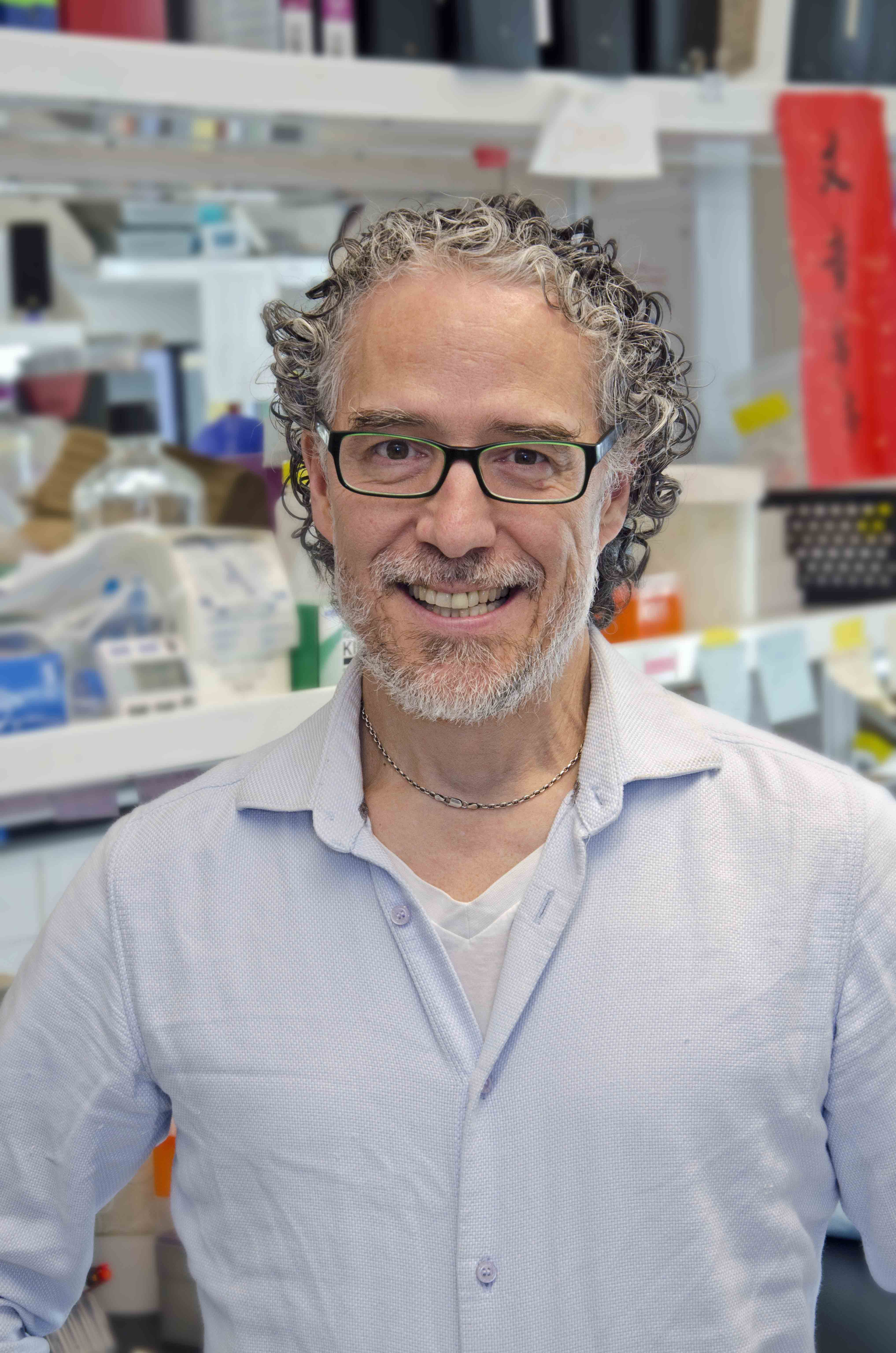Speakers
Bé Wieringa obtained his PhD at the University of Groningen, the Netherlands. Thereafter he spent a three-year postdoc period at the department of Molecular Biology ETH/University Zürich in the group of Prof. Charles Weissmann, working on the mechanisms of ß-globin pre-mRNA splicing. In 1984, he started in Nijmegen at the department of Human Genetics, where he was responsible for the introduction of molecular techniques for gene cloning and mutation detection for X-linked disorders. Also linkage analysis and a mutation identification search for myotonic dystrophy (DM1) on chromosome 19 was started in a joined effort with Han Brunner. In 1990, he was appointed as full professor and head of the department of Cell Biology. One half of his scientific career was devoted to the study of compartmentalized cellular energy and redox reactions in cell and knock-out mouse models (creatine kinases and adenylate kinases). The other half of his scientific career, after the detection of the mutation that causes DM1 in 1992 by a large consortium of scientists of which he was a core member, he concentrated on the study of the pathobiological mechanisms involved in the multisystemic manifestation of DM with help of cell and mouse models. This work was conducted together with Ger Jansen, Rick Wansink, Walther van den Broek and many others and led to (i) the recognition of DNA-repair protein MSH3 as a prominent factor in repeat expansion and yielded new insight in (ii) the biological significance of DMPK protein isoforms, (iii) the cellular copy number of DMPK and antisense transcripts, (iv) the effects of repeat expansion on early myogenic development and (v) the potential value of antisense therapy. Altogether, 42 PhD theses were completed under Be’s guidance. In 2017, he reached the age for mandatory retirement in the Netherlands and is now emeritus professor at Radboudumc.
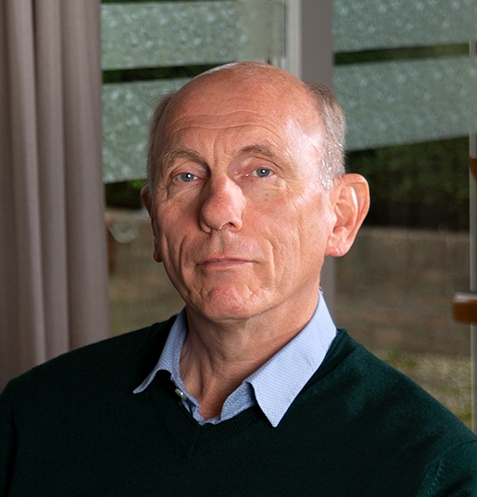
Peter J. Koehler
Faculty of Health, Medicine and Life Sciences
Maastricht University
After his medical training at Leiden University and training as a neurologist in The Hague, Peter J. Koehler (b. 1955) worked at a non-academic teaching hospital in Heerlen from 1988 until 2020. He was responsible for neurologist training for many years. He was President of the Dutch Society of Neurology for four years (1999-2003) and then Section Editor of the Nederlands Tijdschrift voor Geneeskunde (2003-2010) [Netherlands Journal of Medicine]. He was also engaged in scientific research including the areas of headache and neuro-oncology. Since his PhD on a medical history topic (1989, University of Nijmegen), he has also been engaged in the history of neuroscience. He has been editor of the Journal of the History of the Neurosciences since 1997, and for several years he chaired the history working group of the American Academy of Neurology, where he lectured for many years. He currently chairs such a working group at the World Federation of Neurology. Since 2020 he is Senior Associate Editor of Medlink Neurology, an American online book. He has published a large number of scientific articles, edited and written a number of books, and supervised several PhD students. He was an active contributor to several scientific journals. Since 2010, he has columns in De Neuroloog and World Neurology. He has won several awards, including the Lawrence C. McHenry Award of the American Academy of Neurology. He is currently affiliated with the University of Maastricht, where he has lectured on the history of neuroscience since 2009.
Following his retirement in 2020, he is writing books on art history (The Stone of Madness) and a biography on Philippe Fermin.
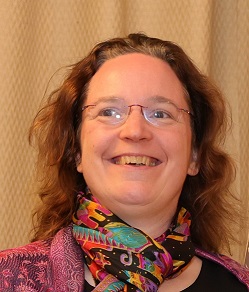
Prof. Dr. Annemieke Aartsma-Rus is a professor of Translational Genetics at the Department of Human Genetics of the Leiden University Medical Center (LUMC, the Netherlands). In 2020 she co-founded the Dutch Center for RNA Therapeutics (DCRT), a non-for-profit academic collaboration aiming to develop clinical treatment with exon skipping therapies for eligible patients with unique mutations. She is chair of the TREAT-NMD advisory committee for therapeutics and TREAT-NMD educational committee.
Her work currently focuses on developing antisense-mediated exon skipping as a therapy for Duchenne muscular dystrophy and rare brain diseases. This involves work in cell and animal models to improve efficiency of exon skipping, studies in muscle pathology, the identification of biomarkers, studying the basics of pre-mRNA splicing and transcript processing and the generation and detailed analysis of mouse models. Finally, she aims to bridge the gap between stakeholders (patients, academics, regulators and industry) involved in drug development for rare diseases and to develop exon skipping therapies for patients with unique mutations.
She has published over 250 peer-reviewed papers, 11 book chapters and 15 patents. She has given many invited lectures at scientific conferences and patient organization meetings, where she is known for her ability to present science in a clear and understandable way. She created and maintains an overview of different therapeutic approaches for Duchenne on the TREAT-NMD website (https://treat-nmd.org/recources-and-support/research-overview/). She has received multiple awards, including the Duchenne Award from the Dutch Duchenne Parent Project in 2011 and the EURORDIS Black Pearl Science award in 2021.
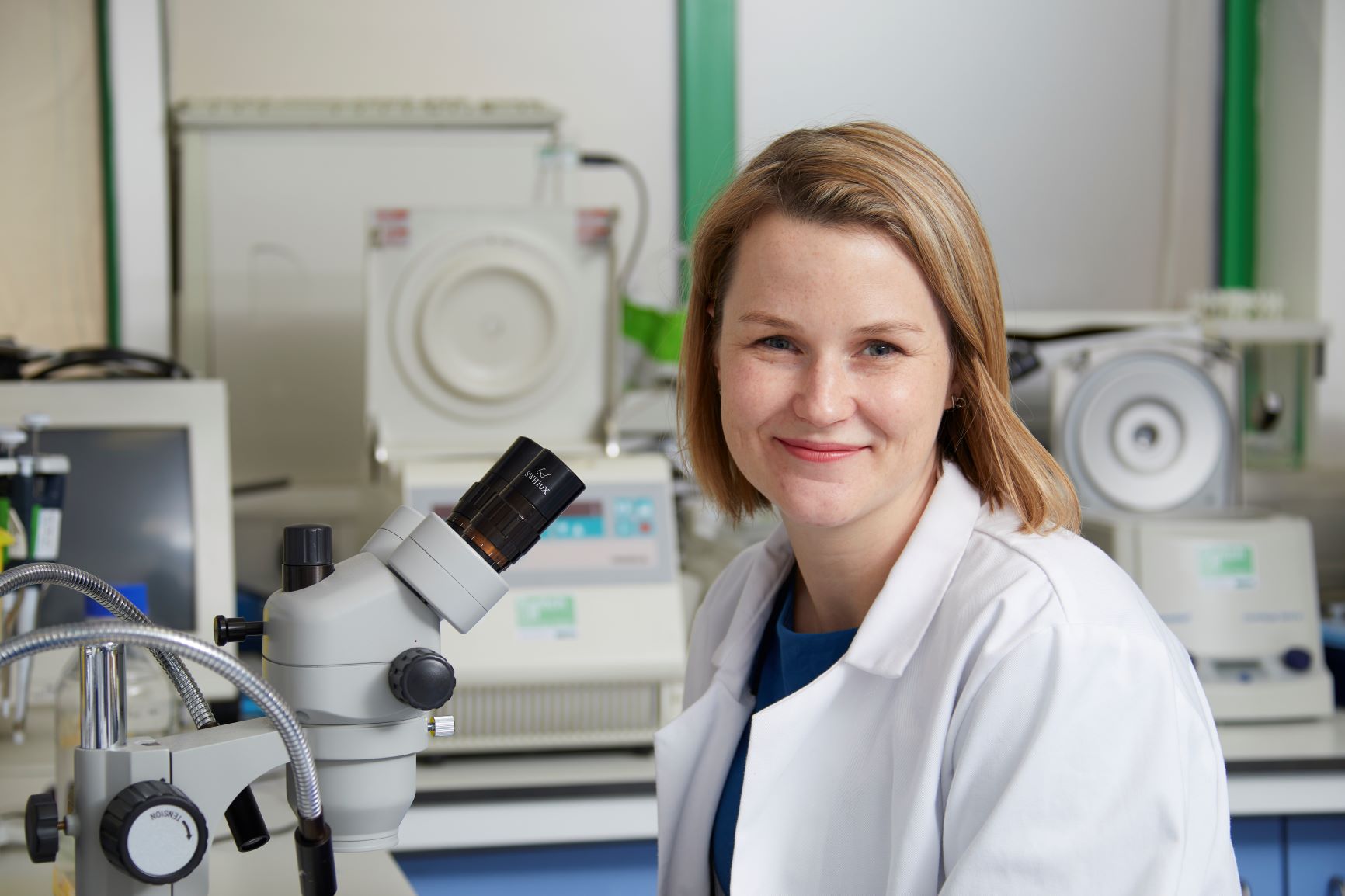
Associate Professor Alice Davidson is a UKRI Future Leader Fellow Professor at the University College London Institute of Ophthalmology (UCL IoO), London, UK
Alice started her scientific research career at the University of Manchester where she undertook a PhD in Molecular Genetics and Cell Biology (2006-2010), investigating the role of bestrophin-1 in ocular disease. She subsequently worked as a postdoctoral scientist at UCL IoO (2010-2015). In 2015 she was awarded a Fight for Sight Early Career Investigator Award to initiate her own independent research programme at UCL IoO and later a prestigious UKRI Future Leader Fellowship (2019) to further advance her inherited corneal disease research program.
Currently, her research aims to understand the genetic origins and molecular mechanisms underlying inherited corneal diseases to facilitate the design and development of diagnostics and therapeutics. Corneal endothelial dystrophies, a group of clinically and genetically heterogeneous disorders that are associated with loss of corneal transparency and reduced visual acuity or blindness are currently the groups major area of focus. Data and insights generated by the team have far-reaching relevance to a broad range of disciplines including repeat-expansion mediated disease mechanisms, precision medicine, gene-directed therapies and functional genomics.
Christopher E. Pearson, Ph.D. (Ultra-Brief CV)
Senior Scientist, The Hospital for Sick Children, Program of Genetics & Genome Biology;
Full-Professor, University of Toronto, Department of Molecular Genetics,
Canada Research Chair in Disease-Associated Genome Instability
Toronto, Ontario, Canada
Dr. Pearson received Ph.D. from McGill University Cancer Centre (1994) studying DNA replication and protein-cruciform-DNA interactions, then did a post-doctoral fellowship in the Texas Medical Center in Houston (USA) to elucidate the mechanism of disease-causing DNA repeat instability in myotonic dystrophy, spinocerebellar ataxia, Huntington’s disease, fragile X mental retardation, amyotrophic lateral sclerosis, and frontotemporal dementia. In 1998 he was appointed at The Hospital for Sick Children Research Institute in the Program of Genetics & Genome Biology and cross-appointed to the University of Toronto in the Department of Medical Genetics, advancing to Senior Scientist and Full Professor. In 1999 he was appointed as a Scholar of the Medical Research Council of Canada. In 2001 he was appointed as a Scholar of the Canadian Genetic Disease Network, Canadian Network Centres of Excellence; awarded The Ontario Premier’s Research Excellence Award; and in 2006 received the International Opportunities Award, Canadian Institutes of Health Research. In 2019 he was appointed Canada Research Chair in Disease-Associated Genome Instability. He has been a Member of International Myotonic Dystrophy Consortium since inception in 1999. He serves, or has served on scientific advisory boards for the National Fragile X Foundation USA, National Ataxia Foundation USA, Hereditary Disease Foundation, The Canadian Neuromuscular Disease Registry, BioMarin-Prosensa Therapeutics, GlaxoSmithKline, AMO Pharma, and has served as an ad hoc scientific advisor for The Marigold Foundation, TREAT-NMD, and the Fragile X Research Foundation Canada. He has diligently served the American Society of Human Genetics and been a member of the Awards Committee for the American Society of Human Genetics since 2009 and was Chair of that committee from 2012-13. He has co-organized the International Conference on Unstable Microsatellites & Human Disease for the past nine iterations, since 2002, as wells as numerous international myotonic dystrophy meetings. He has been Associate Editor for PLoS Genetics, Journal of Medical Genetics, and Human Genetics (since 2007). Christopher’s laboratory has for the past two decades studied the mechanisms of disease-causing repeat instability associated with neurological, neurodegenerative and neuromuscular disease, with the goal of developing effective treatments. In addition to a focus on how DNA repair can drive disease-causing repeat mutation, his lab also studies how DNA repair can protect against cancer-causing mutations. He has published over 95 peer-reviewed studies.
My PubMed:
https://www.ncbi.nlm.nih.gov/myncbi/1b9vt-uQxdz5L/bibliography/public/
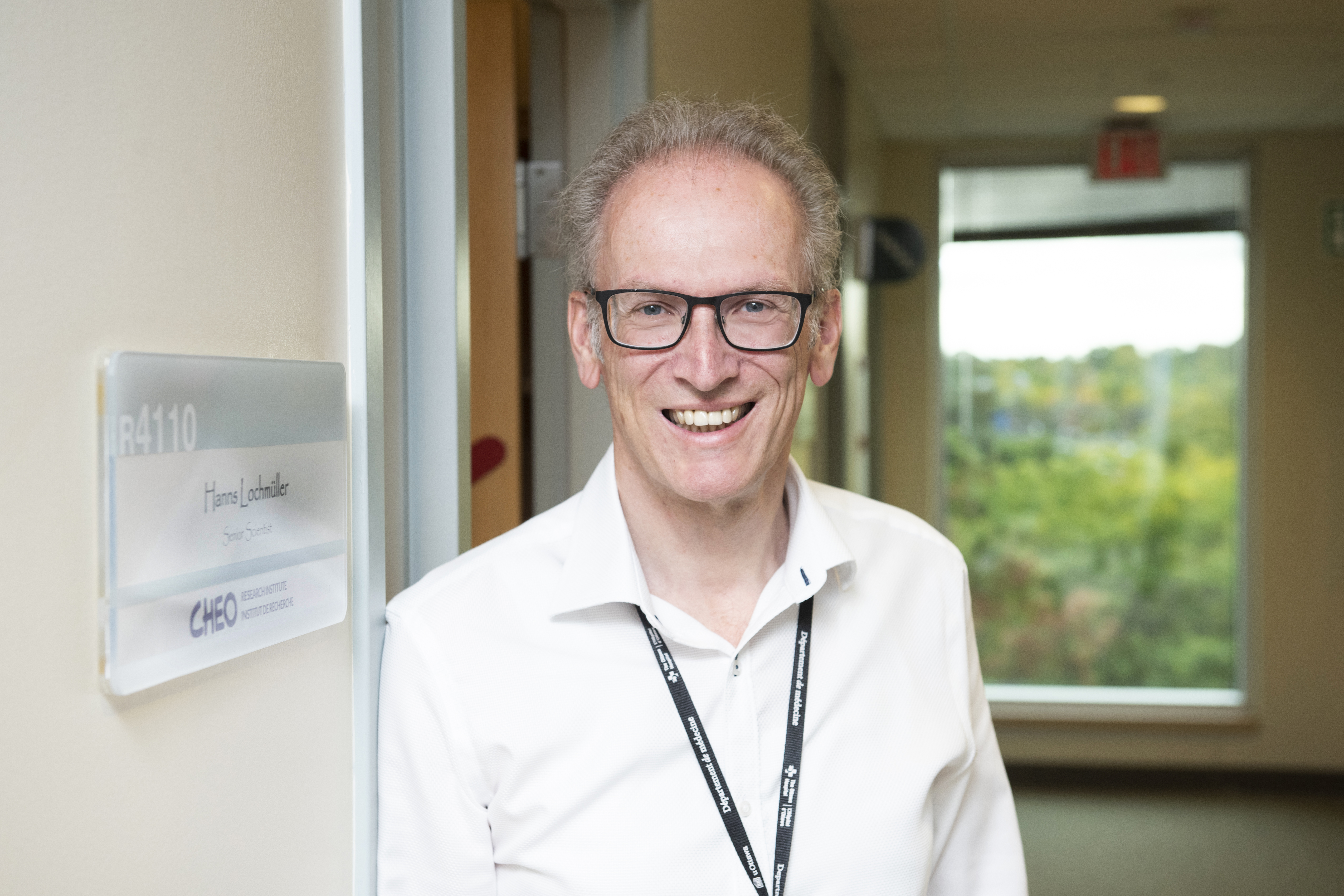
Senior Scientist, CHEO Research Institute
Professor of Neurology, University of Ottawa Faculty of Medicine and The Ottawa Hospital Department of Medicine.
Hanns Lochmüller is a neurologist and clinical academic specializing in genetic neuromuscular disorders and rare disease. He is Senior Scientist at the Children’s Hospital of Eastern Ontario (CHEO) Research Institute. He also holds appointments as Professor of Neurology in the University of Ottawa Faculty of Medicine and the Department of Medicine, Division of Neurology at The Ottawa Hospital. He is affiliated with the University of Ottawa Brain and Mind Research Institute and Department of Cellular and Molecular Medicine and with the Ottawa Centre for Neuromuscular Disease.
Hanns trained as a neurologist in Munich, Germany and in Montreal, Canada. From 2007 to 2017, he held the chair of experimental myology at the Institute of Genetic Medicine at Newcastle University in the UK. He continues to hold a scientific appointment at the Department of Neuropediatrics and Muscle Disorders of the Medical Center – University of Freiburg in Germany and as visiting scientist at the Centro Nacional de Análisis Genómico (CNAG), Barcelona in Spain.
His research interests include molecular therapies of neuromuscular disorders; molecular pathogenesis of muscle and neuromuscular junction disorders; neurogenetics and translational research; data sharing and -omics in neuromuscular and rare diseases; and genomics and systems medicine. In addition to his scientific and clinical research interests, he is internationally active in rare disease science policy and research collaborations. He chaired the Interdisciplinary Scientific Committee of the International Rare Diseases Research Consortium (IRDiRC) and the Executive Committee of the TREAT-NMD Alliance. He initiated and coordinated the highly successful “RD-Connect” international infrastructure for rare disease data and biosample sharing and analysis, is co-founder and former coordinator of the German muscular dystrophy network (MD-NET), and former scientific coordinator of EuroBioBank, a European (and Canadian) network of biobanks for rare disorders.
Hanns’s clinical activities focus on clinical research and care of patients with rare neuromuscular disorders, including myotonic dystrophy (DM1), spinal muscular atrophy (SMA), muscular dystrophy and congenital myasthenic syndromes (CMS). He has a strong commitment to working with patients and patient organizations in Canada, as he has with organizations in Europe for many years.
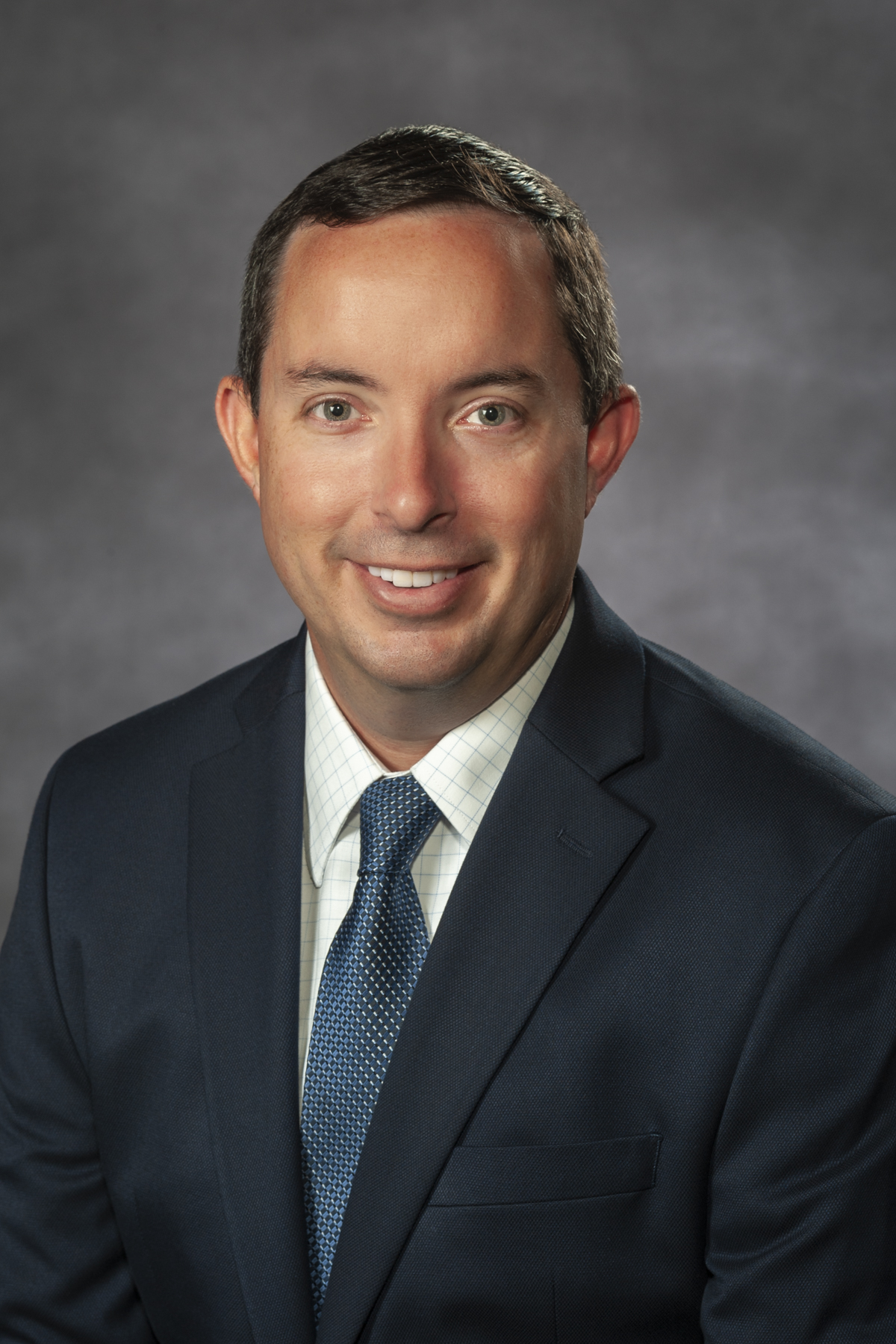
Nicholas E. Johnson, MD, MSCI, FAAN is the Director of the Center for Inherited Myology Research (CIMR), professor, and vice chair of research in Neurology at Virginia Commonwealth University. He received his undergraduate degree in molecular and cellular biology and psychology at the University of Arizona. He then obtained his medical degree at the University of Arizona. He completed his neurology residency and combined fellowship in neuromuscular medicine and experimental therapeutics at the University of Rochester.
He leads the GRASP-LGMD consortium, which focuses on developing clinical outcomes and biomarkers in the limb girdle muscular dystrophies and co-leads the Myotonic Dystrophy Clinical Research Network which focuses on developing clinical outcomes and biomarkers in the myotonic dystrophies. Both networks include sites across the United States, Europe, Canada, and New Zealand with multiple natural history protocols. His laboratory is focused on identifying the pathogenesis and progression of myotonic dystrophy, and biomarkers in limb girdle muscular dystrophy. Johnson conducts genetic therapeutic trials using both viral and non-viral approaches in many inherited nerve and muscle disorders, including limb girdle muscular dystrophy, myotonic dystrophy, and facioscapulohumeral muscular dystrophy.
IDMC-14 2024
 Registration website for IDMC-14 2024
Registration website for IDMC-14 2024Judith van Werven and Bianca Gremmenevents.rha@radboudumc.nl
Judith van Werven and Bianca Gremmenevents.rha@radboudumc.nlhttps://www.idmc14.org
2024-04-09
2024-04-09
OfflineEventAttendanceMode
EventScheduled
IDMC-14 2024IDMC-14 20240.00EUROnlineOnly2019-01-01T00:00:00Z
De VereenigingDe VereenigingKeizer Karelplein 2D 6511 NC Nijmegen Netherlands

